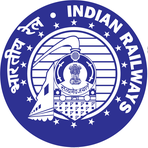Indian Railways' Strategic Initiatives Towards Sustainable Energy and Infrastructure Enhancement
May 21, 2024, 3:47 pm
Indian Railways, a cornerstone of the nation's transportation network, is embarking on a transformative journey towards embracing renewable energy sources and modernizing infrastructure to bolster connectivity and spur economic growth. The recent move to empanel vendors for rooftop solar projects underscores the Railways' commitment to reducing its carbon footprint and promoting sustainable energy solutions. By leveraging the vast rooftop space available across railway premises, Indian Railways aims to harness the power of solar energy to decrease its reliance on traditional energy sources and contribute to environmental conservation.
Simultaneously, the Railways' call for bids for infrastructure projects in the Varanasi division signals a strategic push towards enhancing rail connectivity and upgrading facilities in the region. These projects, which include the construction of new railway lines, track upgrades, and station infrastructure improvements, are poised to not only improve travel efficiency but also stimulate economic activities in and around Varanasi. By modernizing and expanding its network, Indian Railways is aligning with the increasing demands of passengers and freight transportation, setting the stage for a more robust and efficient railway system.
Furthermore, Indian Railways' initiative to establish 100 JanAushadhi Kendras at railway stations across the country represents a commendable effort to enhance healthcare accessibility for passengers and nearby communities. Under the Pradhan Mantri Janaushadhi Yojana (PMJAY), these Kendras will provide quality generic medicines at affordable prices, catering to the healthcare needs of the masses. This initiative not only showcases the Railways' commitment to passenger welfare but also highlights its role in promoting public health and well-being.
In a remarkable display of infrastructure development prowess, Indian Railways has laid an average of 7.41 kilometers of tracks daily over the past decade, underscoring its dedication to bolstering the nation's transportation network. The recent empowerment of General Managers (GMs) and Divisional Railway Managers (DRMs) for infrastructure projects further accelerates project approval processes and streamlines implementation across the railway network. By delegating more authority to key officials, the Railway Ministry is fostering a more efficient and proactive approach towards addressing bottlenecks and expediting critical project execution.
Despite challenges like the recent train crash in Andhra Pradesh, where senior railway operating officials were implicated in an avoidable accident, Indian Railways remains resolute in its mission to revolutionize the country's railway sector. The Mumbai Metro's progress in reaching the Dadar station during its pre-trial phase signifies a significant milestone in the city's metro rail project, showcasing the steady expansion of metro services and infrastructure across Mumbai.
In conclusion, Indian Railways' strategic initiatives towards sustainable energy adoption, infrastructure enhancement, healthcare accessibility, and project acceleration exemplify its unwavering commitment to revolutionizing the country's transportation landscape. By embracing innovation, sustainability, and efficiency, Indian Railways is poised to lead the way towards a more sustainable and interconnected future for India's railway sector.
Simultaneously, the Railways' call for bids for infrastructure projects in the Varanasi division signals a strategic push towards enhancing rail connectivity and upgrading facilities in the region. These projects, which include the construction of new railway lines, track upgrades, and station infrastructure improvements, are poised to not only improve travel efficiency but also stimulate economic activities in and around Varanasi. By modernizing and expanding its network, Indian Railways is aligning with the increasing demands of passengers and freight transportation, setting the stage for a more robust and efficient railway system.
Furthermore, Indian Railways' initiative to establish 100 JanAushadhi Kendras at railway stations across the country represents a commendable effort to enhance healthcare accessibility for passengers and nearby communities. Under the Pradhan Mantri Janaushadhi Yojana (PMJAY), these Kendras will provide quality generic medicines at affordable prices, catering to the healthcare needs of the masses. This initiative not only showcases the Railways' commitment to passenger welfare but also highlights its role in promoting public health and well-being.
In a remarkable display of infrastructure development prowess, Indian Railways has laid an average of 7.41 kilometers of tracks daily over the past decade, underscoring its dedication to bolstering the nation's transportation network. The recent empowerment of General Managers (GMs) and Divisional Railway Managers (DRMs) for infrastructure projects further accelerates project approval processes and streamlines implementation across the railway network. By delegating more authority to key officials, the Railway Ministry is fostering a more efficient and proactive approach towards addressing bottlenecks and expediting critical project execution.
Despite challenges like the recent train crash in Andhra Pradesh, where senior railway operating officials were implicated in an avoidable accident, Indian Railways remains resolute in its mission to revolutionize the country's railway sector. The Mumbai Metro's progress in reaching the Dadar station during its pre-trial phase signifies a significant milestone in the city's metro rail project, showcasing the steady expansion of metro services and infrastructure across Mumbai.
In conclusion, Indian Railways' strategic initiatives towards sustainable energy adoption, infrastructure enhancement, healthcare accessibility, and project acceleration exemplify its unwavering commitment to revolutionizing the country's transportation landscape. By embracing innovation, sustainability, and efficiency, Indian Railways is poised to lead the way towards a more sustainable and interconnected future for India's railway sector.
